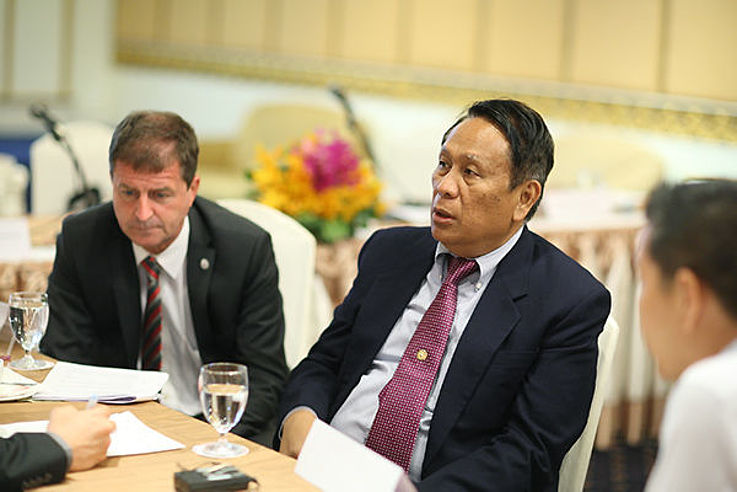Southeast Asian Police Training
Second Regional Police Training Conference on Transnational Crime
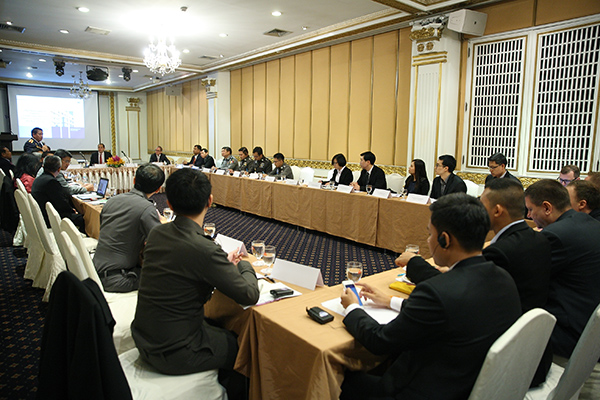
“We should all work towards the standardization of our police training programs as these address transnational crime concerns especially with the integrated policing demands brought about by the ASEAN Economic Community,” said Philippine Public Safety College (PPSC) President Dr. Ricardo De Leon during the two-day “Second Regional Police Training Conference on Transnational Crime” attended by police training and line officials from Cambodia, Indonesia, Myanmar, Philippines, Thailand and Vietnam held from March 26-29 in Bangkok, Thailand. “Eventually, our police trainors will have to undergo a continuous training and qualification process so that police training agencies in the region will have a uniform method of teaching, incorporating a multi-disciplinary, practical case-based approach and while sensitive to the country’s culture, adheres to international standards and observance of the rule of law,” added De Leon, himself a former Police Deputy Director-General of the Philippine National Police.
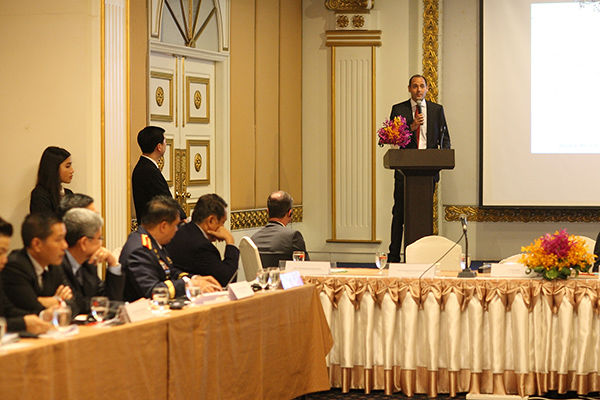
Under its Regional Dialogue Program, the Hanns Seidel Foundation (HSF) works with the police agencies in the Southeast Asian Region to promote regional dialogue and information exchanges among the countries police organizations to develop common solutions to regional concerns.
In 2016, the “First Regional Police Training Conference on Transnational Crime” was held in the Philippines. The participants saw the activity as an opportunity to network and exchange information with each other with the objective of developing a common training model. Of the transnational crimes discussed at that time, the four which are common to the delegates’ country-specific concerns were: cybercrime, illicit drug trafficking, terrorism, and trafficking in persons.
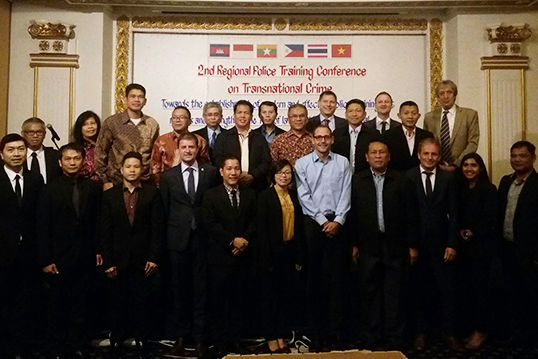
This second conference which is hosted by the Royal Thai Police (RTP) with HSF support sought to: provide directions in the development and standardization of approaches to the development and design of training programs to which address transnational crime concerns and at the same time upholding the respect for human dignity and adhering to the rule of law; and share knowledge, experiences, strategies, and best practices in the conduct of training programs in response to present and emerging transnational crime concerns. Participants will be requested to provide an overview of their (Transnational Crime-related) training programs and specific discussions/presentations relative to their training programs which could be of interest and adapted by the other police training agencies in the region especially in addressing the common transnational crime concerns.
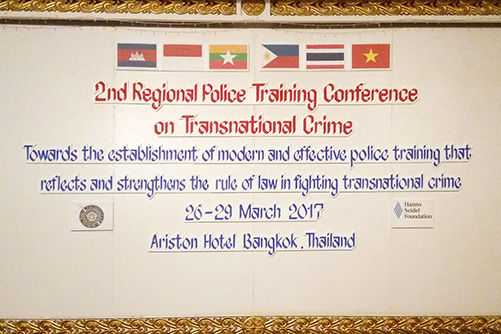
At the conference, the delegations agreed that the following “best practices” should be applied in the development of their respective police training programs.
Inclusion of the modular system of practical case-based training observed (by some delegates) used in training the Bavarian Police.
Incorporation of transnational crime-related subjects for police trainees undergoing basic police training.
Incorporation of technical training in the use of computers, specialized software and the use and analysis of social media to address cybercrime, and civil defense issues.
Inclusion of subjects in networking with other agencies, community policing and observance of the rule of law.
Training in foreign languages and in study of various cultural diversities, customs and practices to strengthen possible response to cases on trafficking in persons.
Planned development of senior-level courses on transnational crime.
An integrated, multi-agency, multi-discipline approach in resolving transnational crime.
Need for establishing linkages with other police, and non-police agencies, both local and foreign in order to formulate a unified response to transnational crime concerns.
Training agencies’ networking, and information sharing with the other law enforcement agencies in the region, both international (ASEANAPOL, EUROPOL, FBI, bilateral police agencies).
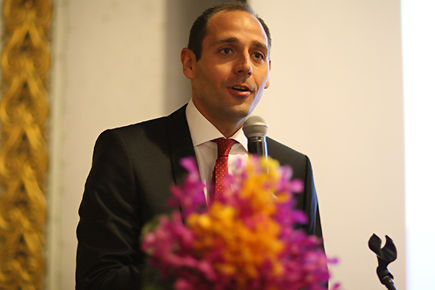
Delegates to this conference are expected to form the basis for the establishment of a core group among the police training agencies within the ASEAN region to continue to share police training materials as these relate to transnational crime and other related matters of common interest. Initially, the PPSC offered to share copies of their training design, and standard learning packages to their counterpart police training agencies. In addition to the delegates’ presentations, Senior Chief Superintendent Bernhard Egger and Senior Chief Superintendent Peter Breitner, both of the Bavarian State Police gave presentations on the “The Philosophy of Fighting Crime/Transnational Crime in Adherence to the Rule of Law,” and “Large-Scale Response of German Police to the Amok-situation in 2016 in Munich, Germany” both of which were well-received by the conference participants.

